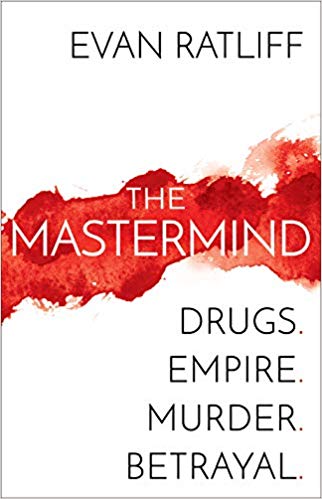Evan Ratliff tells the story of “the decade-long quest to bring down Paul Le Roux—the creator of a powerful Internet-enabled cartel who merged the ruthlessness of a drug lord with the technological savvy of a Silicon Valley entrepreneur.”
Paragraph to ponder:
“Some people speculated that his drive was fueled by some submerged pain—his hurt over being adopted, or some other childhood affront for which he was forever exacting revenge on the world. Maybe so. I always suspected that at least a part of the answer dwelled in his life as a programmer. Le Roux had found his place inside code, a universe in which he could bend reality to his will. It seemed to me that he tried to apply the detached logic of software to real life. That’s why the DEA schemes must have appealed to him. ‘Nothing involves emotion for him,’ the former 960 agent put it to me. ‘Everything is a calculation.’ His approach was algorithmic, not moral: Set the program in motion and watch it run.”
Since I’ve watched Breaking Bad and am watching another season of Narcos, I’m kinda an expert on criminality :). Some take-aways.
The poorer the country, the more explicit the corruption tends to be. In my late 20’s, I was in a van in Kenya when our driver was pulled over by a local cop for no reason other than to “make a payment”. The casualness with which he paid the bribe blew my mind. When police and army salaries are super low, it’s relatively easy to co-opt them through regular “payments”. In countries like the Philippines, where most of The Mastermind takes place, when criminals like Le Roux strike it rich—at one point he was making $6m/week—they can bribe local, provincial, and federal police; military officers; lawyers and judges; and key politicians. Then they can really “scale their business up”.
The Mastermind reveals a seriously flawed United States judicial system. As illustrated so poignantly in post 9-11 analysis, inter-agency rivalries are endemic. Not just between the CIA and the FBI, but also between local, state, and federal policing agencies. People with state-wide authority routinely look down on local officials, federal officials look down on everyone. The greater one’s authority, the greater their sense of superiority. Yet, in the end, the Feds made the worst decisions and ensured justice would not be served.
Criminals benefit massively from interagency rivalries because information is treated as a valuable asset that shouldn’t be shared “down” the line with less competent, less trustworthy underlings. And because each agency wants credit for the biggest busts, competitiveness trumps cooperation. Consequently, all the agencies are much less effective than they could be. This persistence of this phenomenon strikes me as a serious failure of modern social science.
If your television viewing sometimes Breaks Bad, you’re down with Narcos, and/or you’re a student of social sciences, I recommend it.

